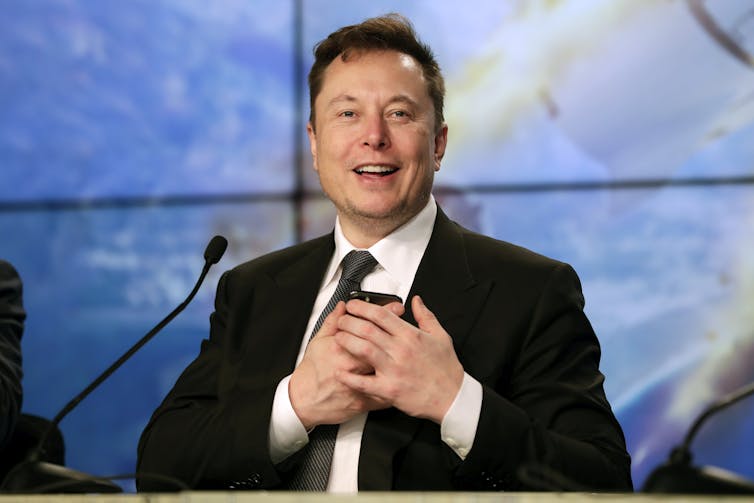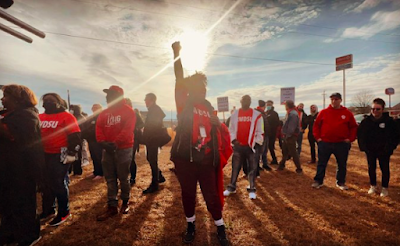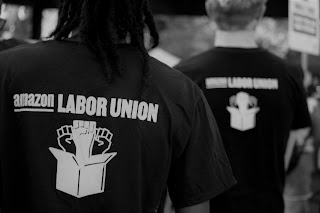Thursday, April 28, 2022
Why did the ALU's campaign for worker rights resonate with Amazon workers?
Tuesday, April 26, 2022
Elon Musk’s plans for Twitter could make its misinformation problems worse

Elon Musk, the world’s richest person, acquired Twitter in a US$44 billion deal on April 25, 2022, 11 days after announcing his bid for the company. Twitter announced that the public company will become privately held after the acquisition is complete.
In a filing with the Securities and Exchange Commission for his initial bid for the company, Musk stated, “I invested in Twitter as I believe in its potential to be the platform for free speech around the globe, and I believe free speech is a societal imperative for a functioning democracy.”
As a researcher of social media platforms, I find that Musk’s ownership of Twitter and his stated reasons for buying the company raise important issues. Those issues stem from the nature of the social media platform and what sets it apart from others.
What makes Twitter unique
Twitter occupies a unique niche. Its short chunks of text and threading foster real-time conversations among thousands of people, which makes it popular with celebrities, media personalities and politicians alike.
Social media analysts talk about the half-life of content on a platform, meaning the time it takes for a piece of content to reach 50% of its total lifetime engagement, usually measured in number of views or popularity based metrics. The average half life of a tweet is about 20 minutes, compared to five hours for Facebook posts, 20 hours for Instagram posts, 24 hours for LinkedIn posts and 20 days for YouTube videos. The much shorter half life illustrates the central role Twitter has come to occupy in driving real-time conversations as events unfold.
Twitter’s ability to shape real-time discourse, as well as the ease with which data, including geo-tagged data, can be gathered from Twitter has made it a gold mine for researchers to analyze a variety of societal phenomena, ranging from public health to politics. Twitter data has been used to predict asthma-related emergency department visits, measure public epidemic awareness, and model wildfire smoke dispersion.
Tweets that are part of a conversation are shown in chronological order, and, even though much of a tweet’s engagement is frontloaded, the Twitter archive provides instant and complete access to every public Tweet. This positions Twitter as a historical chronicler of record and a de facto fact checker.
Changes on Musk’s mind
A crucial issue is how Musk’s ownership of Twitter, and private control of social media platforms generally, affect the broader public well-being. In a series of deleted tweets, Musk made several suggestions about how to change Twitter, including adding an edit button for tweets and granting automatic verification marks to premium users.
There is no experimental evidence about how an edit button would change information transmission on Twitter. However, it’s possible to extrapolate from previous research that analyzed deleted tweets.
There are numerous ways to retrieve deleted tweets, which allows researchers to study them. While some studies show significant personality differences between users who delete their tweets and those who don’t, these findings suggest that deleting tweets is a way for people to manage their online identities.
Analyzing deleting behavior can also yield valuable clues about online credibility and disinformation. Similarly, if Twitter adds an edit button, analyzing the patterns of editing behavior could provide insights into Twitter users’ motivations and how they present themselves.
Studies of bot-generated activity on Twitter have concluded that nearly half of accounts tweeting about COVID-19 are likely bots. Given partisanship and political polarization in online spaces, allowing users – whether they are automated bots or actual people – the option to edit their tweets could become another weapon in the disinformation arsenal used by bots and propagandists. Editing tweets could allow users to selectively distort what they said, or deny making inflammatory remarks, which could complicate efforts to trace misinformation.
Musk has also indicated his intention to combat twitter bots, or automated accounts that post rapidly and repeatedly in the guise of people. He has called for authenticating users as real human beings.
Given challenges such as doxxing and other malicious personal harms online, it’s important for user authentication methods to preserve privacy. This is particularly important for activists, dissidents and whistleblowers who face threats for their online activities. Mechanisms such as decentralized protocols can enable authentication without sacrificing anonymity.
Twitter’s content moderation and revenue model
To understand Musk’s motivations and what lies next for social media platforms such as Twitter, it’s important to consider the gargantuan – and opaque – online advertising ecosystem involving multiple technologies wielded by ad networks, social media companies and publishers. Advertising is the primary revenue source for Twitter.
Musk’s vision is to generate revenue for Twitter from subscriptions rather than advertising. Without having to worry about attracting and retaining advertisers, Twitter would have less pressure to focus on content moderation. This could make Twitter a sort of freewheeling opinion site for paying subscribers. In contrast, until now Twitter has been aggressive in using content moderation in its attempts to address disinformation.
Musk’s description of a platform free from content moderation issues is troubling in light of the algorithmic harms caused by social media platforms. Research has shown a host of these harms, such as algorithms that assign gender to users, potential inaccuracies and biases in algorithms used to glean information from these platforms, and the impact on those looking for health information online.
Testimony by Facebook whistleblower Frances Haugen and recent regulatory efforts such as the online safety bill unveiled in the U.K. show there is broad public concern about the role played by technology platforms in shaping popular discourse and public opinion. Musk’s acquisition of Twitter highlights a whole host of regulatory concerns.
Because of Musk’s other businesses, Twitter’s ability to influence public opinion in the sensitive industries of aviation and the automobile industry automatically creates a conflict of interest, not to mention affects the disclosure of material information necessary for shareholders. Musk has already been accused of delaying disclosure of his ownership stake in Twitter.
Twitter’s own algorithmic bias bounty challenge concluded that there needs to be a community-led approach to build better algorithms. A very creative exercise developed by the MIT Media Lab asks middle schoolers to re-imagine the YouTube platform with ethics in mind. Perhaps it’s time to ask Musk to do the same with Twitter.
This is an updated version of an article originally published on April 15, 2022.![]()
Anjana Susarla, Professor of Information Systems, Michigan State University
This article is republished from The Conversation under a Creative Commons license. Read the original article.
Monday, April 11, 2022
'A Poor People's Pandemic': Poorest US Counties Suffered Twice the Covid Deaths of Richest
Jake Johnson
 |
| Photo credit: Paul Becker |
A first-of-its-kind examination of the coronavirus pandemic's impact on low-income communities published Monday shows that Covid-19 has been twice as deadly in poor counties as in wealthy ones, a finding seen as a damning indictment of the U.S. government's pandemic response.
"The neglect of poor and low-wealth people in this country during a pandemic is immoral, shocking, and unjust, especially in light of the trillions of dollars that profit-driven entities received," said Rev. Dr. William Barber II, co-chair of the national Poor People's Campaign, which conducted the new analysis alongside a team of economists and other experts.
Thursday, April 7, 2022
Meeks wants sacrifices for Ukraine: What about constituents in his district?
FOR IMMEDIATE DISTRIBUTION
CONTACT: Roger Wareham (718) 398-1766
Please see the following Op-Ed on Queens Democratic Congressman Gregory Meeks which appeared in the March 31st New York Amsterdam News.
Meeks wants sacrifices for Ukraine: What about constituents in his district?
Monday, March 21, 2022
THE STRUGGLE FOR WORKER RIGHTS IN BESSEMER CONTINUES…
"It was a portal through which we collectively, many of us, were momentarily allowed to dream of what the future could look like if this emerging or emergent behemoth of Amazon had more democratic control, if workers had more collective power and more say over their workplaces, over how the economy is run so on and so forth...", Robin D.G. Kelley, October 2021
words by Charles Brooks
April 2, 2022 UPDATE: According to the NLRB, the recent election results show 993 versus 875 who want to join the RWDSU but due to 416 “challenged” votes – the results cannot be certified. The results are on hold until the NLRB holds a hearing that, “processes the challenges and any objections the parties may file.
 |
| Photo credit: BAmazon photo gallery |
Workers at the Amazon fulfillment center in Bessemer, Alabama, are once again engaged in a pitched battle to unionize there. Although, workers voted last year not to join the Retail, Wholesale and Department Store Union (RWDSU), the National Labor Relations Board (NLRB) “set aside” the election results due to Amazon’s anti-union activities and ordered new elections.
The workers there now not only have a second chance to make history but to continue the momentum that has already ignited similar organizing activities across the country. The political and economic implications of a win is so enormous that it is no understatement to say the stakes here are high.

%20(4).png)